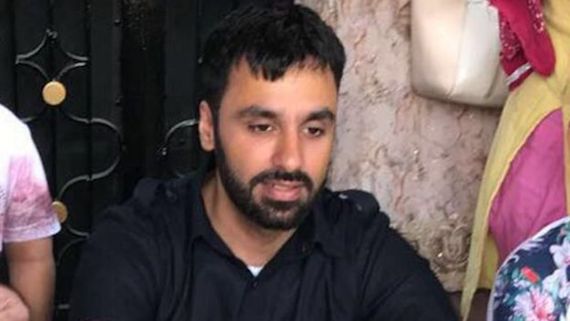
Two years on, India still ignoring well-founded allegations of torture in Jagtar Singh Johal’s case
India continues to ignore its binding international obligations to investigate the allegations of torture in Jagtar Singh-Johal’s case, as Monday 4 November 2019 marks two years since his arrest in India. New expert analysis has added further support to Jagtar’s claims of torture.
Jagtar, a British national, was seized, hooded and abducted by plain-clothes police officers on 4 November 2017 while he was in India to get married. He alleges that he suffered severe torture during his early detention, but India has yet to provide him with an independent medical examination or take any steps to investigate these allegations.
India has ignored an urgent appeal made by three high level UN experts in January last year, where they called on India to respond to the torture allegations, explain the legal basis for Jagtar’s arrest and detention, and provide the results of any medical examination that may have been conducted. REDRESS understands that at least one of those experts, the UN Special Rapporteur on Torture, is in the process of taking follow-up action in light of India’s failure to respond.
Last week, the International Rehabilitation Council (IRCT), the world’s leading centre of knowledge on the physical and psychological effects of torture and ill-treatment, conveyed the findings of an independent expert analysis carried out at the request of REDRESS to the Indian authorities.
The expert analysis concluded that there were “reasonable grounds” to believe that Jagtar was tortured, and highlighted “an urgent need for Mr Johal to undergo an independent medical examination and psychological evaluation in order to effectively investigate [the claims]”.
The IRCT further recommended “that Mr Johal should receive urgent access to independent medical and psychological examination and care to address the physical and psychological injuries that he may suffer as a result of the possible extreme physical and psychological assaults against him.”
Members of IRCT’s Forensic Expert Group, comprised of 35 preeminent independent forensic specialists from 18 countries, were involved in the analysis of a hand-written letter in which Jagtar described the treatment that he suffered after his arrest.
In the two-page handwritten note provided to his lawyer in February 2018, Jagtar stated that Indian police tortured him between 5 and 9 November 2017 through means including electric shocks to his ears, nipples and genitals, forcing his limbs into painful positions and death threats.
Jagtar remains in prison in India, where he is facing charges for offences under the Indian Penal Code, the Indian Arms Act and the Unlawful Activities Prevention Act in cases brought by the Punjab police and the Indian National Investigation Agency. As far as REDRESS is aware, no evidence has been presented so far against Jagtar in any of these cases.
Gurpreet Singh Johal, Jagtar’s brother, said: “I am not surprised that the Indian authorities have failed to respond to UN and UK’s calls for an investigation into Jagtar’s allegations of torture. It is clear that India has something to hide, hence they have not allowed the independent medical examination to take place. Furthermore India has continued to delay the legal proceedings, resulting in Jagtar being incarcerated for two years without being formally charged on the alleged allegations.”
The widespread use of torture and ill-treatment in India during investigations or to extract confessions has long been documented by human rights groups. Amnesty International documented 894 deaths in judicial custody and 74 deaths in police custody during a period of just eight months last year. India is the only major democracy that has not ratified the UN Convention against Torture. REDRESS has long advocated for India to do so.
Former UK Prime Minister Theresa May raised Jagtar’s case during a visit from the Indian Prime Minister Narendra Modi to London in April last year and 70 MPs signed a letter in July raising concerns about his treatment.
Charlie Loudon, International Legal Adviser at REDRESS, said: “Despite numerous calls from the United Nations, the UK government, medical experts and Jagtar’s family, India continues to ignore the well-founded claims of torture in Jagtar’s case. Two years on from Jagtar’s detention, it remains crucial that India meets its legal obligations to conduct an independent investigation and hold anyone responsible to account.”
More information about Jagtar Singh Johal’s case can be found on the REDRESS website.
For more information or an interview, please contact Eva Sanchis, REDRESS’ Head of Communications, on [email protected], +44 (0) 20 7793 1777 or + 44 (0) 7857 110076 (out of hours).
